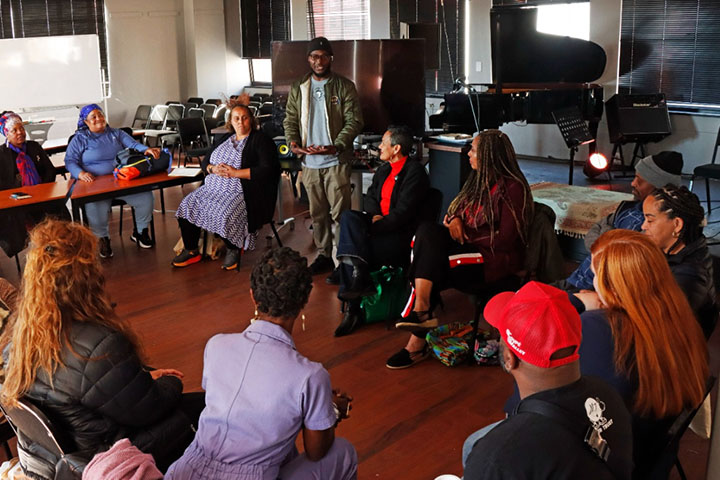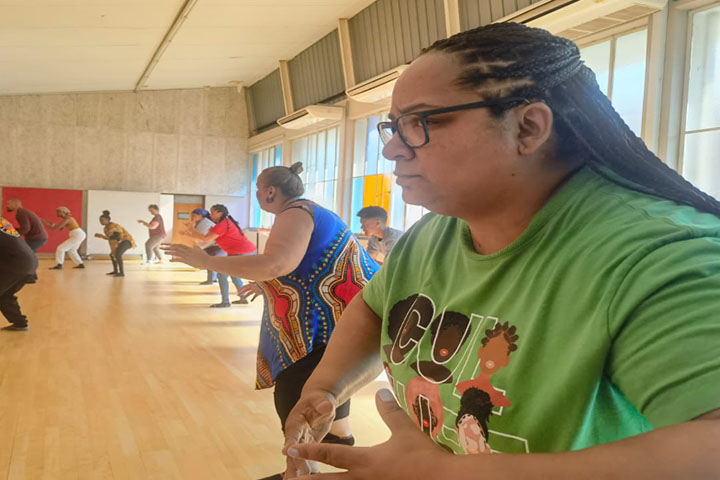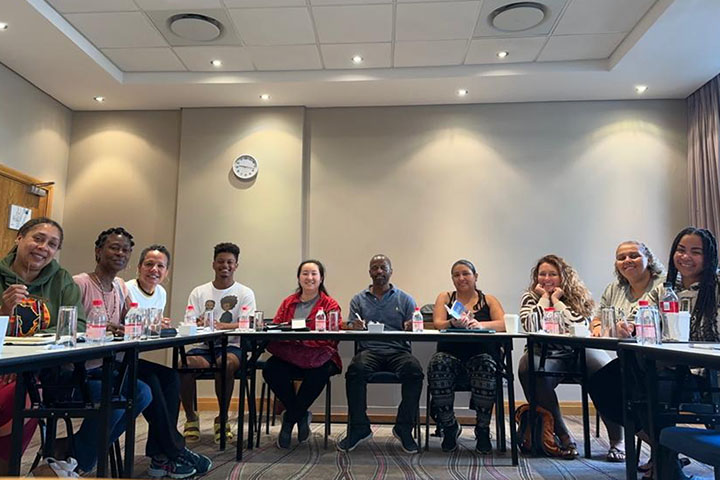Fulbright-Hays Group Project Abroad (GPA) Program
African Knowledge Systems
The Department will apply for funding for the summer 2025 program, please check back in the summer of 2024 for updates including the theme of the project, program dates and the application form and deadline for the summer 2025 project. You can reach out to the program director or coordinator, contact information below, for any inquiries.
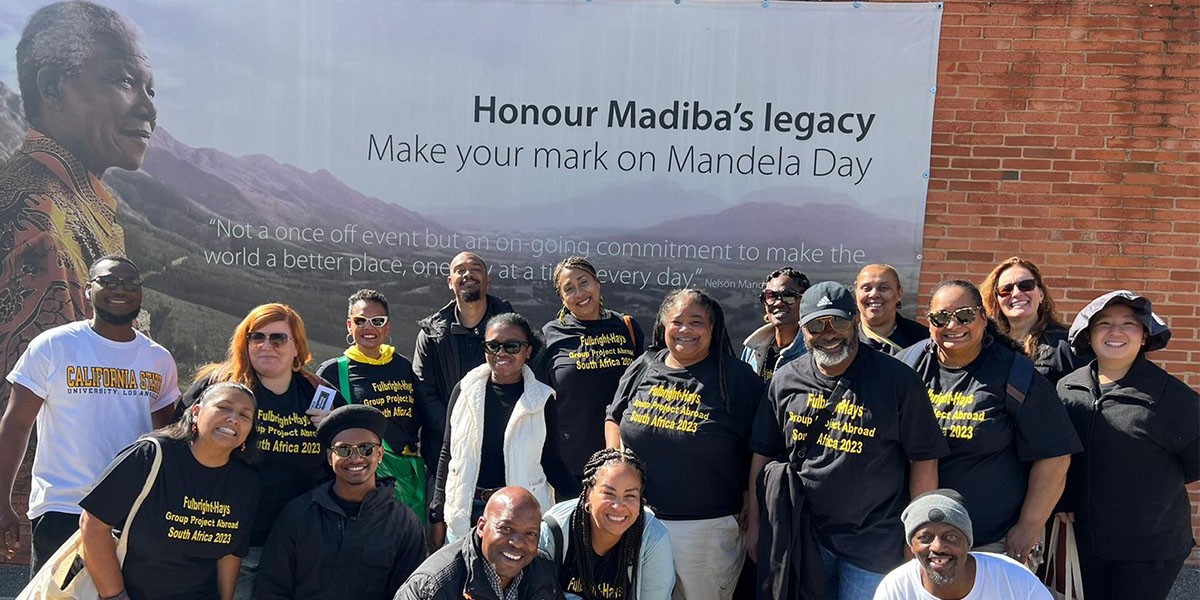
The four-week Fulbright-Hays GPA program will be held in South Africa. The Fulbright-Hays Group Projects Abroad Program (GPA) is a national, federally-funded program by the U.S. Department of Education, with partial support from California State University, Los Angeles. Cal State LA is the administrative institution for the program. The program is designed to promote, improve, and develop the study of modern foreign languages and area studies in the United States.
Announcement
The four-week Fulbright-Hays GPA program will be held in South Africa. The Fulbright-Hays Group Projects Abroad Program (GPA) is a national, federally-funded program by the U.S. Department of Education, with partial support from California State University, Los Angeles. California State University, Los Angeles is the administrative institution for the program. The program is designed to promote, improve, and develop the study of modern foreign languages and area studies in the United States. The short-term curriculum development GPA is a four week program that provides faculty, teachers, administrators, and students of social sciences, humanities, and foreign languages from across U.S. institutions of education with an opportunity to advance their competency in the Zulu language and culture in South Africa and the opportunity to acquire resource materials for curriculum development in modern foreign language (i.e. Zulu language) and area studies for use and dissemination in the United States.
The programs’ specific target group includes California secondary school teachers; faculty members at higher education institutions in California; administrators at state departments of education, higher education institutions or school districts in the state of California who are responsible for planning, conducting, or supervising programs at school systems at all levels; and graduate students, or juniors/seniors in higher education institutions, who are prospective teachers in modern foreign languages and area studies. The program encourages individuals who meet the above stated target group and work in the study area of ethnic studies, Pan African Studies/Africana Studies, African history, and/or other Africa related study areas, as well as those individuals who work in the California State University System, minority serving institutions, the Los Angeles Unified School District, and/or minority serving school districts in the state of California to apply.
Project Goals:
- To promote the integration of international/ethnic studies into the social sciences and/or humanities curriculum throughout U.S. school systems at all levels;
- To Increase linguistic and cultural competency among U.S. students and educators; and
- To focus on a particular aspect of area study.
- An individual is eligible to participate in a GPA project if s/he is:
- A citizen, national, or permanent resident of the United States; and
- Currently employed full-time in a U.S. school system, institution of higher education, Local Education Agency or State Education Agency (not applicable to students);
- And, at least one of the following:
- A teacher in an elementary or secondary school (please see note below);
- A faculty member who teaches modern foreign languages or area studies.
- An experienced education administrator responsible for planning, conducting, or supervising programs in modern foreign languages or area studies at the secondary, or postsecondary levels;
- A graduate student or junior or senior in an institution of higher education, who is a prospective teacher in the areas of social sciences, humanities and foreign languages. The student should meet the provisions set by his or her local and state education agencies.
(Note: All GPA participants must be educators, students, pre-service teachers or administrators who fulfill the criteria above and the selection criteria set by their respective projects and are currently teaching, studying, and/or administering in the eligible fields of humanities, social sciences, foreign languages, and/or area studies. Area studies is defined as a program of comprehensive study of the aspects of a society or societies, including the study of their geography, history, culture, economy, politics, international relations, or languages. If an educator or student is working in a variety of subject areas, s/he must spend the majority of his/her time working with eligible subjects.)
The program is comprised of six components, namely:
- Coursework (classroom instruction)
- Lecture Seminars
- Tours to Cultural/Historical Sites
- Hands-on Workshops and Performances
- Resource Materials Acquisition
- Curriculum Development and Dissemination
Coursework
The Zulu GPA coursework is comprised of two sections: Language and Culture Education.
The communicative/conversational language acquisition & use (Part I) of the Zulu course is tied to rest of the GPA curriculum components, namely guest seminars, educational tours of cultural/historical sites, workshops, resource materials, and modules development. The course is designed around the 5Cs of the U. S. National Standards for Foreign Language Learning, namely, Communication, Cultures, Connections, Comparisons, and Communities to enable participants in their process of becoming lifelong learners to develop insight into the nature of the language and the culture of the Zulu people as well as the ability to use the Zulu language in appropriate contexts. The contents of this section are mainly drawn from authentic materials including stories, newspaper articles, poems, ads, and songs. Texts from various textbooks designed for second language learners are also used. At the completion of this course participants can discuss a variety of contemporary issues (cultural and religious practices, family life/relationships, political events, education, Zulu history etc.). Culture Education (Part II) of the Zulu course is tied to the language education section (Part I) as well as the rest of the GPA curriculum components, namely tours to cultural and historical sites, workshops and performances, lecture seminars, resource materials and module development.
Lecture Seminars
Lecture seminars are held weekly, by expert faculty from partnering institutions in South Africa as well as community experts on a wide range of topics, including Zulu history, aspects of the Zulu culture, gender in the Zulu culture and impact on performing arts, language and education in South Africa, indigenous music of the Zulu people, role of performing arts in South African societies, impact of apartheid and democracy on education and performing arts programs, pre and post-apartheid migration and its impact on music, dance culture, and language in South Africa, and the history of music, role of music during apartheid, its impact on the psyche and behavior, etc.
Tours of Historical/Cultural Sites
Participants will visit historical and cultural sites in Gauteng, KwaZulu-Natal, and Western Cape Provinces. Examples of sites include Apartheid Museum, Freedom Park Museum, Phansi Museum (Zulu clothing museum), EShowe Museums (Christianity/Zulu wars/Zulu Baskets & Beads), Soweto Township/Nelson Mandela House Museum, Migrant Labor Museum, the Kirby Collection at the College of Music at the University of Cape Town, Robin Island, etc.
Hands-on Workshops and Performances
The hands-on workshop and performance attendance is designed to teach participants how to make Zulu cultural products such as beadwork and learning how to perform Zulu cultural practices such as Zulu dance and music.
Resource Materials Acquisition
Participants will visit bookstores, markets, and indigenous music instrument stores in all three provinces to acquire resource materials to be incorporated in the development of their U.S. curriculums.
Curriculum Development and dissemination
Participants will utilize the final week of the project to work on their modules, these modules will be incorporated into their curriculums. Once the modules have been finalized, reviewed, and approved by the participants they will be made available electronically to the entire community of educators and administrators in the United States, and participants will disseminate the modules at relevant conferences and workshops in the United States.
The program is funded by U.S. Dept. of Education to provide intensive instruction in the Zulu language and culture. During the project participants will have time to make contacts with South African academics and administrators to discuss research affiliation and similar matters related to their future academic/research plans. But participants will not have time to pursue personal projects related to their own educational programs.
Participant Eligibility: All participants must be U.S. citizens, nationals, or permanent residents and studying full-time or employed. They should be teaching, studying, or administering in the fields of humanities, social sciences, foreign languages, and/or area studies. The group may include:
- Secondary school teachers;
- Faculty members at higher education institutions;
- Administrators at state departments of education, higher education institutions or school districts who are responsible for planning, conducting, or supervising programs at school systems at all levels; and
- Graduate students, or juniors/seniors in higher education institutions, who are prospective teachers in modern foreign languages or area studies.
The Fulbright-Hays SHORT-TERM CURRICULUM DEVELOPMENT GPA grant covers the following expenses:
- International travel to and from Durban, South Africa from New York City, or any other designated U.S. departure airport.
- Accommodation and food for the duration for the program.
- Program-related transportation in South Africa.
- Entrance fees to museums and performance shows.
- Educational materials distributed during the program.
The grant does not cover:
- Participant Program Fee of $600 to cover administrative expenses in the United States
- Local travel from the participants’ homes to New York City, John F. Kennedy Airport or any other designated U.S. departure airport and return after the program. (Participants are advised to seek funding support from their institutions, academic departments, etc. for Program Fee and local travel).
- Mandatory health insurance for the summer abroad in South Africa.
- Passport and visa fees.
- Inoculations and other health-care expenses related to travel.
- Travel done on the student’s own time and initiative in Southern Africa.
- Personal shopping and gifts.
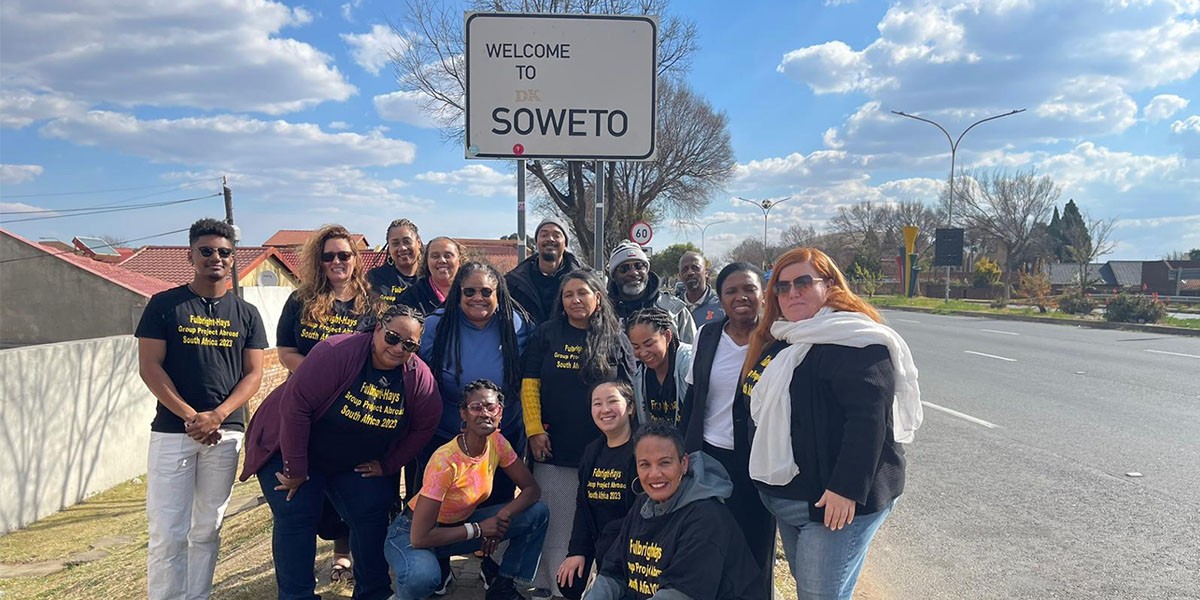
Fulbright-Hays GPA summer 2023 participants in Soweto Township, South Africa
Program Contacts
Professor Dlamini
Coordinator, Fulbright-Hays Short-Term GPA
Pan African Studies Department
323-343-2290
Dr. McDougal
Director, Fulbright-Hays Short-Term GPA
Pan African Studies Department
323-343-2290
